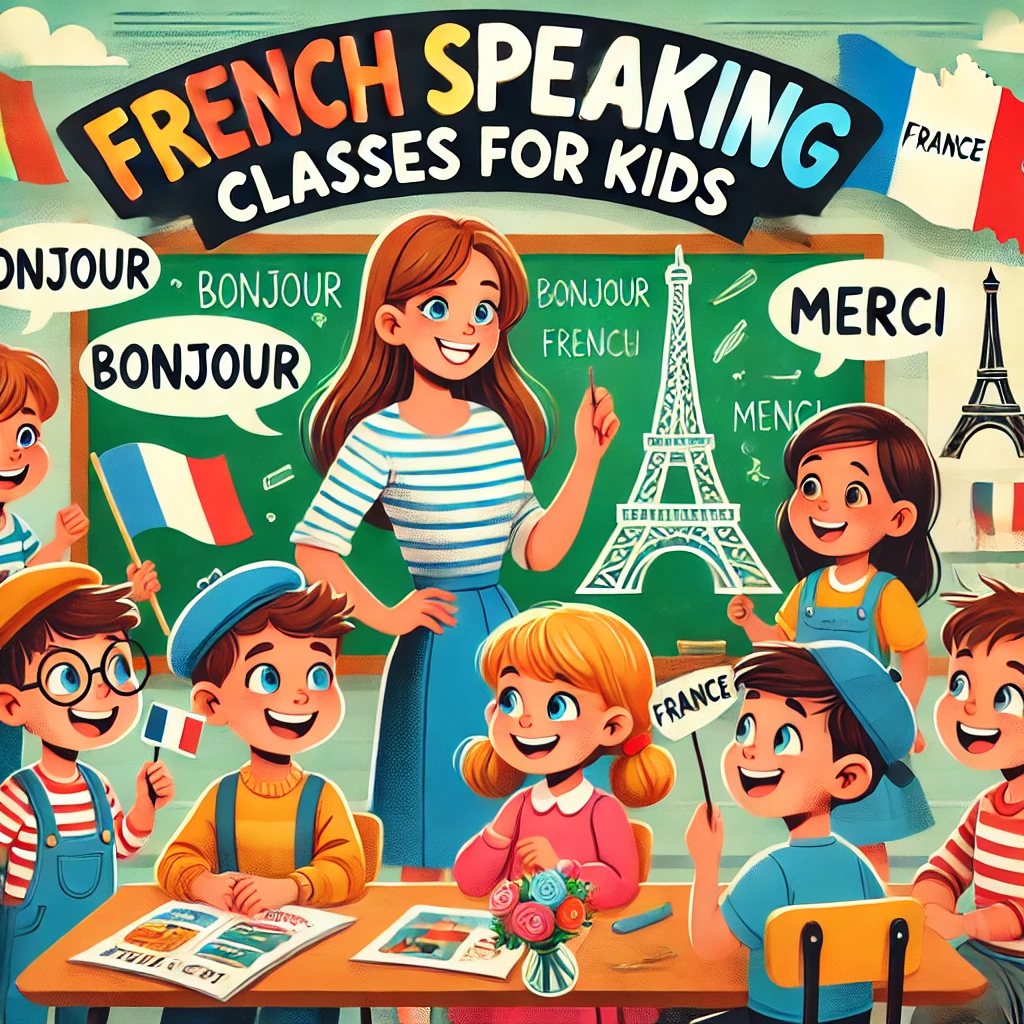French Speaking Classes for Kids: Benefits, Tips & How to Choose the Best Course?
In today’s interconnected world, knowing a second language like French offers a distinct advantage. Not only is French one of the most widely spoken languages globally, but learning it early also nurtures cognitive, cultural, and social skills in children. This article delves into the benefits of French-speaking classes for kids, practical tips for parents, and key considerations when selecting the best course.
Pourquoi apprendre le français dès l’enfance ? (Why Learn French in Childhood?)
Children are at the ideal age to learn new languages due to their brain’s plasticity. Learning French offers:
- Cognitive Growth: Studies show that learning a second language enhances problem-solving skills, memory, and creativity.
Apprendre une langue étrangère stimule le cerveau de manière significative. - Cultural Awareness: French opens the door to understanding the rich culture of France, including its art, literature, and cuisine.
- For example: “La lecture des contes français comme ‘Le Petit Prince’ introduit les enfants à la culture française.”
- Future Opportunities: Being bilingual can increase future career prospects in fields like international relations, tourism, and the arts.
Benefits of French Classes for Kids
Taking structured French-speaking classes provides the following advantages:
1. Builds Confidence in Communication
Children feel more comfortable expressing themselves in a new language when taught in a supportive environment.
- Classes often involve interactive activities, such as role-playing and storytelling, to boost speaking fluency.
- Example: “Bonjour, comment ça va ?” becomes second nature with consistent practice.
2. Boosts Multitasking Skills
The ability to switch between English and French enhances multitasking and improves attention spans.
- Kids often learn to navigate between two grammatical systems effortlessly.
3. Promotes Social Skills
Learning French often involves group interactions, which helps children make friends and develop social skills.
- Participating in conversations like “Parlez-vous français ? Oui, je le parle un peu.” builds confidence in diverse settings.
Tips to Encourage Kids to Learn French
Here are actionable tips for parents to make learning French engaging for their kids:
- Start with French Songs and Rhymes:
French songs like “Frère Jacques” make language learning fun. - Practice Daily Conversations:
Incorporate simple phrases into daily life, such as:- Merci beaucoup (Thank you very much)
- Je veux jouer (I want to play)
- Use Visual Aids:
Flashcards with French vocabulary can help kids associate words with images. - Read French Picture Books:
Start with bilingual books to familiarize them with the sounds and spellings.
How to Choose the Best French Course for Kids
Selecting the right course is crucial for maximizing the benefits of French-speaking classes. Consider the following factors:
1. Course Content
Look for courses that cover key areas:
- Vocabulary (les mots de base), grammar, pronunciation, and sentence structure.
- Fun activities like games and storytelling to sustain engagement.
2. Mode of Learning
Decide between:
- Online Classes: Flexible and convenient. Many platforms offer live sessions with native speakers.
Example: “Bonjour les enfants, êtes-vous prêts pour la leçon d’aujourd’hui ?” - In-Person Classes: Encourage face-to-face interactions and peer learning.
3. Teacher’s Expertise
Ensure the teacher is fluent in French and has experience teaching kids.
- Native speakers often bring cultural insights into the learning process.
4. Child’s Learning Style
Some kids learn better through visual aids, while others prefer auditory methods. Opt for a course that adapts to your child’s needs.
French Immersion Tips for Kids
To help your child retain their French skills, create an immersive environment:
- Encourage Watching French Cartoons: Shows like “Petit Ours Brun” or “Caillou” expose kids to authentic language usage.
- Organize Playdates: If possible, arrange interactions with other French-speaking kids.
- Celebrate French Culture at Home:
- Cook French dishes like crêpes or quiches.
- Celebrate La Fête Nationale (Bastille Day) with themed activities.
Kids French Course Selection FAQs
Here are answers to some commonly asked questions about French-speaking classes:
1. At what age should kids start learning French?
The earlier, the better! Children as young as 3 can begin with basic vocabulary like bonjour, au revoir, and merci.
2. What are the best resources for teaching French to kids?
- Bilingual storybooks
- Apps like Duolingo Kids and Gus on the Go
- Online platforms offering interactive classes
3. How long does it take for kids to speak French fluently?
It depends on the frequency of practice and exposure. With regular classes and home practice, kids can become conversational within 1-2 years.
4. Are online French classes effective for children?
Yes, many online courses use engaging activities, live interactions, and gamified lessons to teach French effectively.
Why Invest in French Classes for Kids?
Learning French is more than just acquiring a language; it’s about opening doors to new cultures, opportunities, and cognitive benefits. By enrolling your child in the right French-speaking class, you set them on a path to becoming global citizens with a world of possibilities ahead.
Remember: “L’apprentissage d’une langue est une fenêtre ouverte sur le monde.” (Learning a language is a window to the world.)








Leave a comment